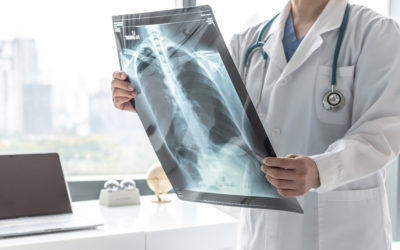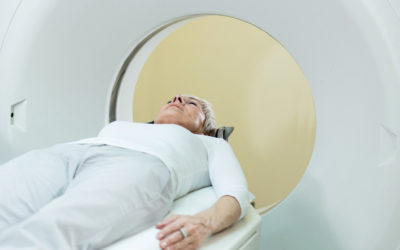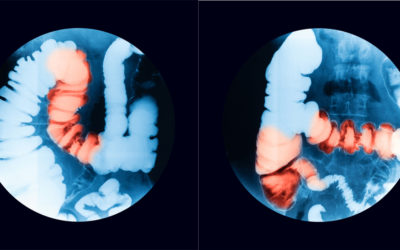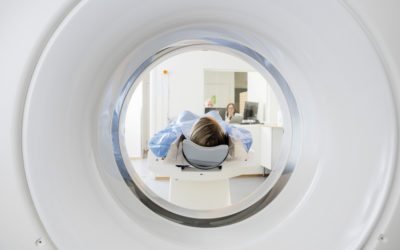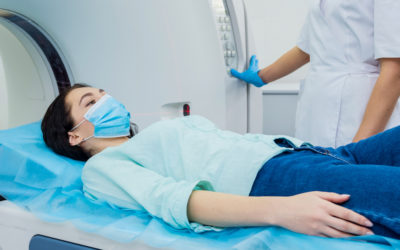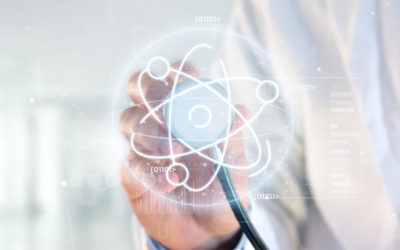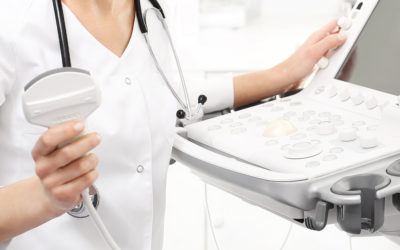Bone Density Testing
Osteoporosis means “porous bones” and is a debilitating disease that can lead to bone fracture. More than 52 million Americans have low bone density and are at risk for osteoporosis – 80% are women. DEXA scans (which stands for Dual-Energy X-Ray Absorptiometry) are an advanced test available for measuring bone density. If a loss of bone mass is discovered, especially early, patients can receive treatment to prevent breakage and further loss. Deaconess Illinois Crossroads is proud to offer this advanced test, and echoes the National Osteoporosis Foundation’s recommendation that women over 65 should get a DEXA scan every two years to diagnose bone density loss and hopefully prevent osteoporosis.
All of our DEXA diagnostic technologists are highly skilled professionals who are certified in the field of radiology.
Patients typically return every two years to monitor changes, depending on the individual clinical history. Remember to stop take any calcium or vitamin supplements at least 24 hours prior to exam and arrive in comfortable, metal-free (zippers, snaps, etc.) clothing.
In addition, a DEXA Scan has the capability to obtain an Instant Vertebral Assessment (IVA), which is a 10-second, low-dose x-ray scan of the entire spine, allowing doctors to see existing vertebral fractures, which may indicate the need for more aggressive treatment, even if bone density results are in the “normal” range.
What to expect during your Bone Density Exam
During your Bone Density test, you will lay comfortably on a padded table while the DEXA Unit scans two or more areas, usually the fracture-prone hip and spine. The entire process takes only minutes to complete. A Bone Density test does not involve any injections or invasive procedures, and you remain fully clothed.
You should not have a barium study, radioisotope injection, oral or intravenous contrast material from a CT scan or MRI within seven days prior to you Bone Density Scan.
We offer bone density services on an outpatient basis Monday through Friday from 8 a.m. to 4:30 p.m.
For more information, please contact:
(618) 241-8564
For More Information
Call 618-241-8564
Related Services and Conditions
Diagnostic Imaging
At Deaconess Illinois Crossroads, diagnostic imaging is used to create a graphic depiction of the structures and functions of the body’s organs and other internal systems. These images are used to examine and diagnose certain medical conditions. Our professional...
3D Mammography
What’s Better Than Early Detection? Earlier Detection! Exciting new 3D Mammography technology can increase your chances of early invasive breast cancer detection by 41%1 Why choose a 3D screening mammogram during your next breast cancer screening exam? 3D mammography...
CT Scan
Thanks to CT scanning (computed tomography, often called a “CAT” scan) doctors can view a “slice” of the human body painlessly. Often used to diagnose life-threatening conditions and issues like cancer, blood clots, infections, lung and liver disease, head and spine...
Fluoroscopy
Think of fluoroscopy like a video x-ray. With the help of a contrast agent like barium (which helps illuminate physical structures when introduced into the patient’s body), fluoroscopy gives doctors a real-time view of bodily systems at work. The procedure is...
Interventional Radiology
Interventional radiology utilizes minimally invasive image-guided procedures to diagnose and treat diseases in nearly every organ. Highly trained Radiologists perform these procedures to provide answers and treatment options to their patients. Deaconess Illinois...
Magnetic Resonance Imaging (MRI)
It’s clear—precision is important during diagnosis. Of all imaging technologies, MRI or Magnetic Resonance Imaging gives doctors the clearest, most precise image of the inside of the body. MRI uses a strong magnetic field to show the structure and detail of organs,...
Nuclear Medicine
A special kind of imaging, nuclear medicine creates images of the body and its functions by capturing the energy of a safe radioactive substance as it flows through the body. It’s used to detect tumors and infection by bringing to light a number of bodily processes...
Lung Cancer Screening
The Deaconess Illinois Crossroads Lung Cancer Screening Program offers low-dose CT screenings for patients who might be at risk for lung cancer, including smokers and former smokers. Here are three things to know about lung cancer screening: Lung cancer screening has...
Ultrasound
Deaconess Illinois Crossroads uses ultrasound as a painless, non-invasive way to diagnose a variety of diseases and conditions without the use of radiation, making this a widely used procedure during pregnancy. Sometimes called sonography, ultrasounds bounce...

